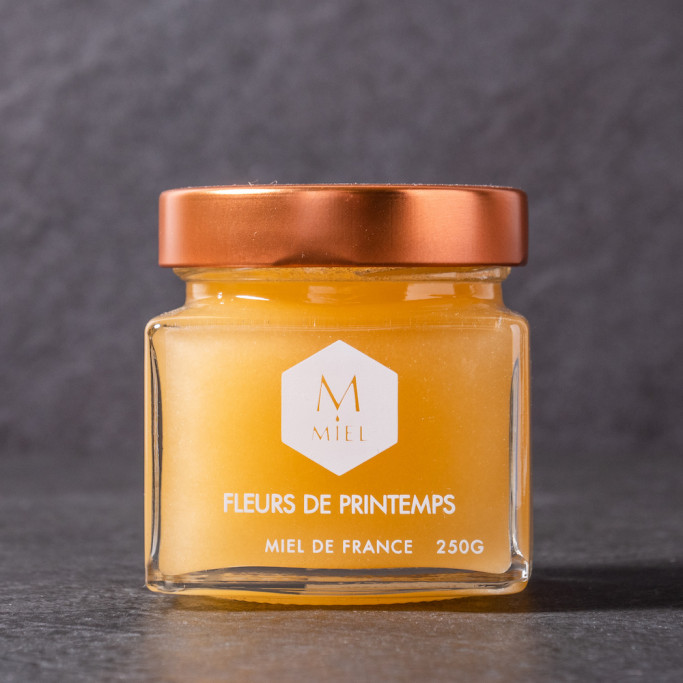

 0
0
 0
0
La Manufacture du Miel's spring flower honey is floral, fresh and tangy, with menthol notes and a long finish. The bees have gathered flowers of white clover, lime, maple, oak, blueberry and bramble. Its floral diversity gives it great complexity.
Liquid at harvest, it crystallizes over time.
A distinguished, transparent jar.
Rich in trace elements, this honey has antibacterial, antiseptic, antioxidant and anti-inflammatory properties thanks to its high phenolic and flavonoid content.
A committed honey, the fruit of the support and development work of the OFA (Office français d'Apidologie) beekeeping sector, to which we donate 100% of the proceeds from sales (see our commitments). It comes from the foothills of the Sainte Baume massif and the many beehives in the Bouches-du-Rhône region supported by the OFA: the largest herd of beehives in France.
250 g / 400 g
Use pure with a spoon or as a garnish for everyday cooking.

Nombreuses ont été les alertes. En 2018 la planète compte 7,5 milliards d’individus, et 1,5 milliards souffrent déjà de carence alimentaire. Que ferons-nous lorsque nous serons 9 milliards en 2050 ? 2050 c’est déjà demain. Par leur rôle de principal insecte pollinisateur, les abeilles sont responsables d’1/3 de la production de notre alimentation. Mais partout, leurs colonies s’effondrent... Les abeilles sont en train de disparaître. Tout l’écosystème est lié, il ne s’agit pas seulement d’abeille, il s’agit de l’avenir de la planète et de l’humanité.
